'Prometheus' is truly an enigma wrapped inside a riddle
Posted Wednesday, June 13, 2012 at 4:53 PM Central
Last updated Wednesday, June 13, 2012 at 4:54 PM Central
by John Couture
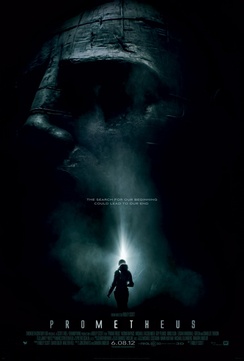
I might as well get this out of the way up front. If you haven't seen Prometheus and you want to see it without being spoiled, then don't read the rest of this article. It's OK, we'll still be here when you finally see it.
If you've seen the movie or you don't really care of about being spoiled, then there's a good chance that the headline above hits home with you. There are two movies this year that I vowed to see in a theater no matter what, The Dark Knight Rises and the aforementioned Prometheus.
So, you know that I entered the viewing last night with pretty high expectations, even with the general response to the film being mixed at best. You see, I like movies that make you think. Heck, I even wrote a story about this last week.
Let's face it, Hollywood is getting lazy. They assume that since brain-dead movies such as Transformers are making a ton of dough that they don't have to make movies that make you think. I could go on here, but I've already written one story on this, I don't need to rehash what I already wrote.
So, how do we evaluate a movie like Prometheus? A movie that asks a lot of questions and only gives you a couple of answers. In other words, they expect you to fill in the rest of the blanks. Is this approach risky? Of course it is since it seems that Hollywood and a large portion of the audience just want everything spoon-fed to them.
Of course, it's a risk that could pay off handsomely. I believe that movies like Prometheus succeed because they require people to talk about it, to hash out with their friends, and by extension their online social network, to figure things out. Heck, the best case scenario for the studio is the film that is so moving that it compels people to see it over and over again.
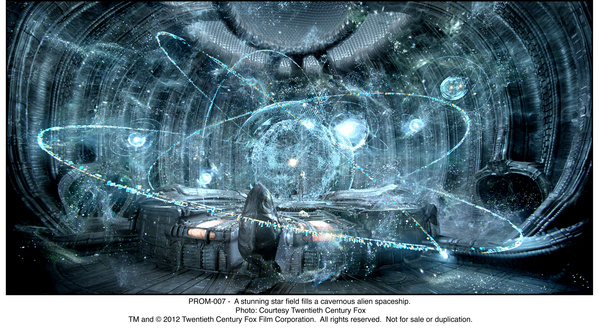
After all, saying that Hollywood is lazy might be a bit of hyperbole on my part. What is true is that Hollywood is all about making big bucks and the films that currently do that aren't the Prometheuses or Inceptions (although they both did or will do handsomely at the box office), but those lowest common denominator films that ask you to check your brain, and taste, at the door.
So, is Prometheus a good movie? Like the movie itself, that question begs more, deeper questions. How do you define good movies? Is the current movie critic based review of films outdated and unnecessary?
While I know how a certain favorite filmmaker of mine would answer that last question, I think these are all questions worth asking.
For the record, I enjoyed Prometheus immensely for many reasons that I will highlight below and some that I just don't have space and time to get into. Is it a perfect film? Of course not, name me a single perfect film. No really, do it, I'd really like to know.
However, as an epic philosophical treatise on the nature and future of human beings set against the vast unexplored reaches of space, I think Prometheus comes closer to perfection than many others do. Sadly, I think its biggest anchors are the same things that make Prometheus such an amazing film.

Director Ridley Scott introduced the world to the Alien films, much like George Lucas brought us the Star Wars universe. As Lucas learned with his prequels, the old adage about not standing in the same river twice is remarkably true.
When word leaked out that Scott was toying with the idea of returning to the Alien universe, the writing was already on the wall for Prometheus. Remember that Ridley Scott was not involved with any of the sequels, so when you just take the first film by itself, you realize that there really is fertile ground for a prequel.
But, short of telling the story that ends with a crashed alien ship on LV-426 and a space jockey with a busted chest, creating a new story in the Alien universe will upset many die-hard fans. But that's the rub. If Ridley Scott were simply interested in an A,B,C sequel or prequel, he would have simply taken the reins of Aliens or wouldn't have waited 30+ years to get back to the Alien universe.
No, Scott was more interested in telling a different story within that established universe. One that yes, would hint at answers to some of the questions that Alien raised, but one that would ask its own questions and diverge onto its own path.
The other anchor is writer Damon Lindelof and the prejudices people brought to the theater for his work on Lost (for the record, I loved Lost, so I wasn't burdened by this). In Lost, Lindelof asked a lot of questions and some people weren't satisfied with the answers. Think for a moment of some of the deep questions that Prometheus brings up. Where do humans come from? Who made us? Why did they make us and then abandon us? What is our place/purpose in the universe?
These questions are precisely the ones that philosophers and religious scholars have been grappling with since the dawn of time itself. If you honestly believed that Lindelof was going to be able answer them all with nice bow on it in just over two hours, then you're the crazy one.
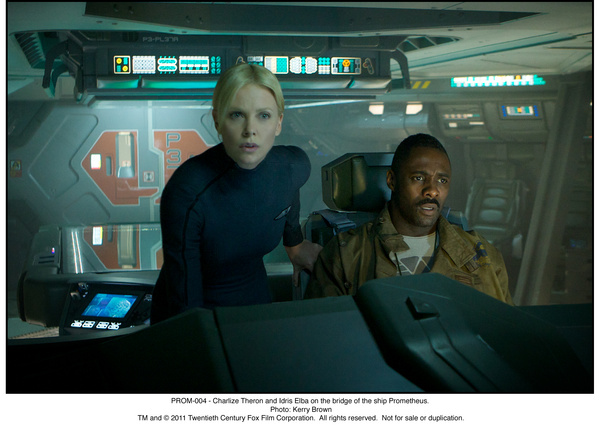
But more than that, while Alien was really a traditional horror film told in a science-fiction setting, Prometheus aimed for something much grander in scope. First and foremost, it's a thought-provoking philosophical story that showcases the hubris of man.
The story presents this noble quest for the search of the beginning of life and the answers to everything, all the while mocking the very beings that are on this quest. If you had any illusions that the film was going to answer all of them, they should have died when Holloway met his fiery end.
No, one of the most telling exchanges in the movie happens between David and Charlie over a billiards table. On the surface, they are speaking philosophically about creating life. David asks Charlie why he (humans) created him (robots). And Charlie's response was a trite "because we could."
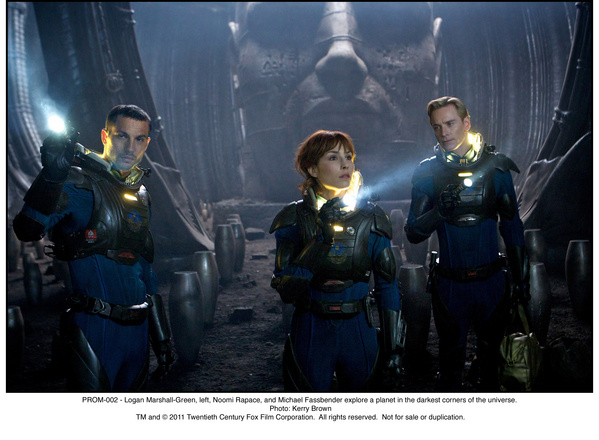
Of course, the banter was all set dressing for David's true motive of poisoning Charlie with the black sludge so that he could impregnate Shaw with an alien embryo. Do you see the irony here? Humans created David and here was our creation pretty much attempting to destroy humanity by creating some version of a xenomorph.
Getting back to the bigger questions in the movie, and in philosophy in general, sometimes we don't like the answers. Or, we are unimpressed with the answer. As David posited to Charlie in this pivotal scene, what if Charlie asked the Engineers why they made humans and the Engineers simply said, because we could.
In reality, while most people claim that this wasn't answered in the movie, I think the first scene is the key to understanding the answer. I will have to go back and watch the film again to be sure, but to me it seems that creating humans was a mistake.
The Engineer who is left on the planet and then drinks the concoction seems almost surprised when it starts to kill him from the inside out. It's only by chance that he falls over the waterfall and his genetic code is broken up and starts the genesis for the species that will become man.
We next learn that these Engineers returned from time to time to visit with humans. Humans documented these visits with cave drawings which were later misinterpreted to be an invitation.
It's interesting that the last contact with humans was over a couple thousand years ago (again, I'll need to re-watch to confirm) and that the ship was marooned on LV-223 for about 2,000 years. Further it was packed with canisters of the black goo and the before being marooned, the intent was to return to Earth with the black goo.
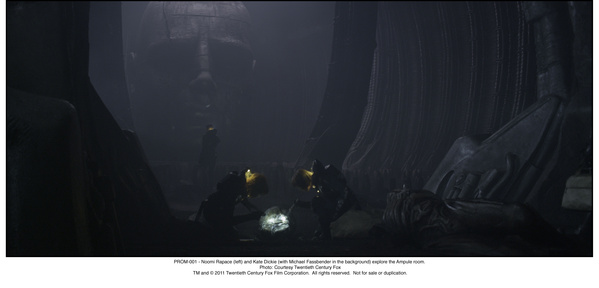
So, the real question is what was the black goo and what was its intended purpose? In the movie, they postulate that the black goo was some sort of chemical warfare and that the Engineers were planning on returning to Earth 2,000 years and again at the end of the movie to wipe out humans.
The actions of the one surviving Engineer who wakes up lends credence to this theory, but what if the initial plan was something more positive? It's clear from the hologram recordings that something went wrong and killed the Engineers. Maybe it was something as simple as the black goo got out and morphed something into a being that killed the Engineers.
Or, it's possible that perhaps the Engineers in their hubris made a bad batch of the black goo. I think it's clear that the black goo transforms all life that comes into contact with it. It turns the worms into super evil worms and it turns Charlie into an alien embryo impregnating machine.
So, it's possible that a good batch of the black goo could transform humans into Engineers. In that respect, the initial plan could have been to help foster evolution in humans. Of course, good intentions never go bad, right?
And really, isn't that the whole point of the film? Whether we were created by design or by an accident, the human condition is one to question and challenge our surroundings. It's something that the Engineers noticed growing in us when they made plans for the black goo and it's something that we passed on to our creations, David.
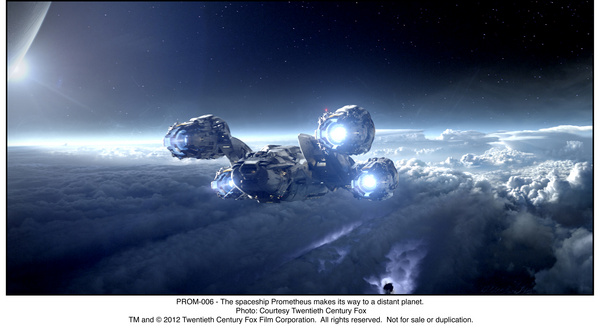
And remember, the Greek titan Prometheus, whom the ship is named after, was punished for his actions to help humanity. I think you can make a nice parallel between the Greek gods and the Engineers in the film both being punished for their attempts to help humanity evolve.
There's so much going on in this movie. There's a great parallel between Weyland and his children, Vickers (human) and David (robot). Charlize Theron, who plays Vickers, utters a great line in the film. "A king has his reign, and then he dies. It's inevitable."
Also, David says something about all children want to see their parents die. And naturally, Weyland doesn't want to die. In fact, he's traveled all the way to LV-223 on his death bed simply to gain immortality from the Engineers.
So, if you make the parallel between Weyland and his children and the Engineers and humans, then you start to get a better understanding of the Engineers' motivation in wanting to destroy humanity. They realize that like children or those next in line for the throne, humans will always question their existence and want to usurp the Engineers for supremacy.
Thus, the Engineers could have been plotting a preemptive strike on humanity. You know, a kill your children before they go all Menendez brothers on you sort of thing.
Whatever the case, the open interpretation of the film certainly has led to a lot of discussion and speculation about the film, but back to my main thesis, how do you quantify a good movie in today's day and age? And what does it mean to be a good movie?
I think that we are continually evolving as an audience of film. You have to realize that as a medium of art, film is one of the youngest art forms out there. So, we are still learning and tweaking the experience.
For me, the best definition of a "good film" is one that generates discussion. The concepts of good and bad and taste are so subjective that one film might be one person's gold, while the same film is another person's trash.
But those films that make an impression and spark conversation are the ones that truly will stand the test of time. Say what you will about Gigli, and it's one truly awful film, but it's still part of our pop culture. Contrast that with say The Opportunists which no one remembers and I think most films would rather be Gigli.
And in today's age of Twitter and social media, it should be pretty easy to generate a social buzz score that reflects how much discussion a movie creates. That scale would be a pretty good indication of whether a movie is good or not.
For my money, Prometheus scores high on that scale because people that both love and hated it are still talking about it. And that to me is the only thing that matters.





